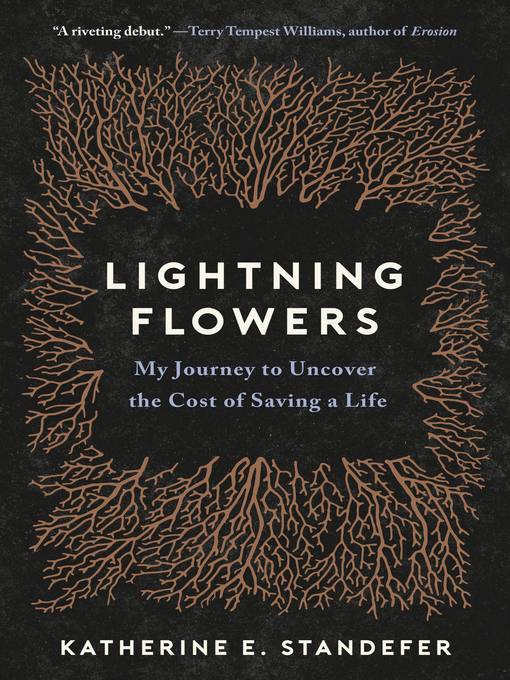
Lightning Flowers
My Journey to Uncover the Cost of Saving a Life
سفر من برای از بین بردن هزینه نجات یک زندگی
کتاب های مرتبط
- اطلاعات
- نقد و بررسی
- دیدگاه کاربران
نقد و بررسی

October 1, 2020
In this debut, Standefer writes a brave, bold story of the technologies that often save us--and their failure to always do so. From its opening sentence ("Nothing can prepare you for what it feels like to be shocked by an implanted cardiac defibrillator"), the book grapples with modern medical technology's environmental, ethical, and social costs. Standefer shares personal narratives that firmly root these questions in lived experience, and she weaves the history of medical technologies such as the invention of the EKG into a memoir that is firmly grounded in its sense of place, family, and identity in gut-wrenchingly beautiful ways. This is an adventure of sorts that moves from California to the Democratic Republic of the Congo and the Madagascar jungle, where Standefer draws attention to how much is lost in our efforts to secure resources that advance medical technology while consistently retaining a sense of shared human concerns with the material body in all of its weaknesses and limitations. Along the way, the author talks personally about grieving her previous life, adjusting to life with an internal defibrillator, and acknowledging pain. VERDICT An engaging medical memoir about living with, and learning to live, life's scars.--Emily Bowles, Lawrence Univ., WI
Copyright 2020 Library Journal, LLC Used with permission.

October 15, 2020
A sharp examination of the ways that a heart condition affected the author's life as well as those of strangers halfway across the world. Beginning in 2007, writes Standefer, her younger sister began to suffer multiple bouts of cardiac arrest. She was diagnosed with "congenital long QT syndrome," a condition that causes the heart to electrically misfire, and she had a cardioverter defibrillator implanted and tried to resume her life. Later, the author discovered that she also had LQTS, and her own world turned upside down as she realized she also needed an implant--or face the uncertainty of not knowing when she might go into cardiac arrest. In this moving, empathetic memoir spanning multiple years, Standefer shares her fears and concerns, especially regarding the manufacture of the implant and whether the cost of making the device equaled the value of its ability to save her own life. She traveled to Madagascar and Rwanda, where the metals used in the defibrillator were mined. "For years," she writes, "I tried to calculate whether an implanted cardiac defibrillator was worth the cost of its creation....I added up the village removals, the forests half cut and finally bulldozed....I tallied the tailing ponds, the humming forests devoid of humans, the humans beside them desperate for work. The women kept as sex slaves in the mining slums." The author also writes about her desire for intimacy with her long-term boyfriend and the effects that her condition had on their relationship. She intertwines passages about hiking and rock-climbing adventures with her research on LQTS, creating a nice balance between the difficult medical aspects of her new life and the excursions in nature that she still enjoys. Packed with emotion and a rare, honest assessment of the value of one's own life, this debut book is a standout. An intensely personal and brave accounting of a medical battle and the countless hidden costs of health care.
COPYRIGHT(2020) Kirkus Reviews, ALL RIGHTS RESERVED.

























دیدگاه کاربران